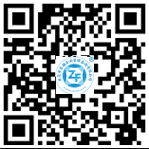Contact Us
Contact: Miss Luo
Phone:13798904733
18928298220
Tel:0769-22805501
QQ:691743147
Eamil:dgzf@dgzf0769.com
Address:Room 104, Building 6, Haiyi Palace Shangdu, No. 66 Hujing Avenue, Houjie Town, Dongguan City, Guangdong Province
The new ISO9001:2015 edition of the widely influential ISO9001 quality management system standard is expected to be released in September 2015. Compared with ISO9001:2008, the new version of the standard has undergone significant changes. In order to cooperate with the changes of ISO standards and ensure the smooth transition of the new version of the standard, IAF officially released the "ISO9001:2015 Version Conversion Implementation Guide" in January 2015.
The "ISO9001:2015 Edition Conversion Implementation Guide" briefly introduces the main changes of the new version of the standard, and puts forward relevant suggestions and guidance for organizations, certification bodies and accreditation bodies to respond to the changes in the standard. It is worth noting that IAF's "ISO9001:2015 Edition Conversion Implementation Guide" clarifies: IAF and CASCO have reached an agreement that the new version of the standard conversion period is: within 3 years after the official release date of ISO9001:2015 Edition; :2008's organization recommends the following:
• Carry out a difference analysis of the application of the old and new standards within the organization as soon as possible;
• Establish a conversion implementation plan;
• Train or inform all departments involved in the effectiveness of the management system of changes to their standards;
• Update the existing management system in accordance with the new version of the standard to ensure that the system continues to meet the requirements of the new standard and maintain its effectiveness;
• When using the new standard, please contact the existing certification body providing services to make arrangements for the transition.
Regarding the conversion form of ISO9001:2008 certification, the "ISO9001:2015 Edition Conversion Implementation Guide" has also made relevant clarifications, including
(1) The certification body shall conduct an ISO9001:2015 audit for each client.
(2) Based on the agreement with the certification organization, the certification body may carry out conversion activities during routine surveillance audits, re-audits and/or special audit schedules.
(3) When a transition audit occurs during a scheduled surveillance audit or an audit at a certain stage (an ongoing audit in the process or an audit at a certain stage), the certification body should add additional audit time to ensure that all audit activities are completed. Covers existing requirements and requirements of the new version of the standard.
(4) Evaluation activities implemented during the DIS draft stage cannot be considered as formal transitions.
(5) Any such earlier assessment must be reassessed and fully validated prior to ISO 9001:2015 transition.
Like other IAF guidance documents, this guidance is publicly available on the IAF website. For more details, please refer to the IAF website.
What is IAF?
IAF International Accreditation Forum (International Accreditation Forum, English abbreviation IAF), established in January 1993, is a worldwide organization of conformity assessment and accreditation and other interested in management systems, products, services, personnel and other similar areas. An international cooperative organization composed of relevant agencies involved in assessment activities. The IAF is committed to establishing a single conformity assessment system worldwide that reduces risks to businesses and their customers by ensuring the credibility of accredited certificates. The members of the IAF accreditation body recognize the certification body, and the certification body issues a certificate to the certified organization to prove that the organization's management system, products or personnel meet a specific standard (this type of activity is called conformity assessment). IAF members are mainly divided into four categories: accreditation body members, auxiliary members (including accredited certification body/inspection body members, industry/user members), regional members, and partner members. The goals of IAF are: to follow the principles of the World Trade Organization (WTO) Agreement on Technical Barriers to Trade (TBT), and to promote and achieve international mutual recognition of certification activities and results through extensive exchanges between accreditation bodies in various countries on relevant accreditation systems and other aspects, reduce or Remove technical barriers to international trade caused by certification, and promote the development of international trade. The role of the International Accreditation Forum Multilateral Recognition Agreement (IAF/MLA): IAF established the International Accreditation Forum Multilateral Recognition Agreement (IAF MLA). Through the comprehensive and systematic international peer review by IAF, the national accreditation bodies whose accreditation system meets the requirements of relevant international standards have signed the IAF MLA. The institution is an official signatory to the IAF MLA Group. Only by joining the IAF MLA group can the national accreditation body show that its accreditation results are equivalent, and the certification certificate with the sign of the signatory's accreditation has international equivalence and mutual recognition.

 简体中文
简体中文
